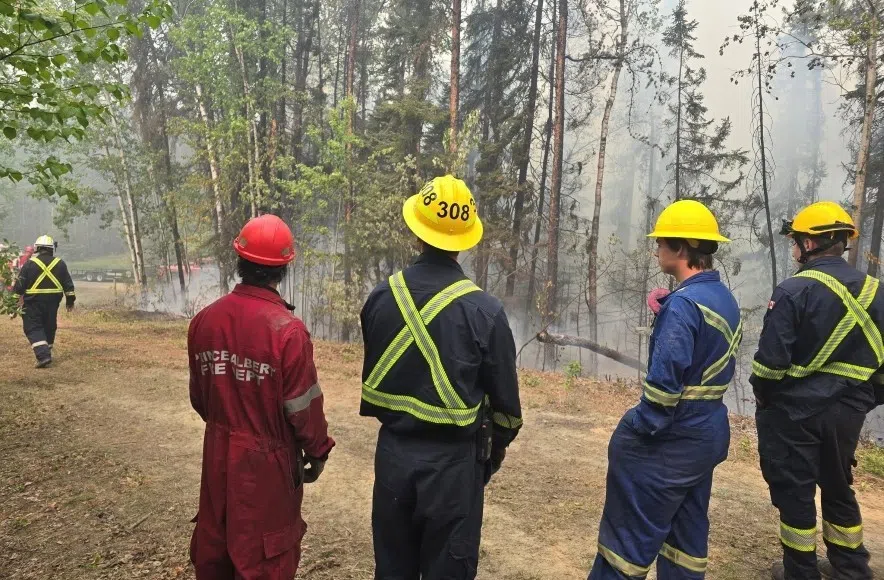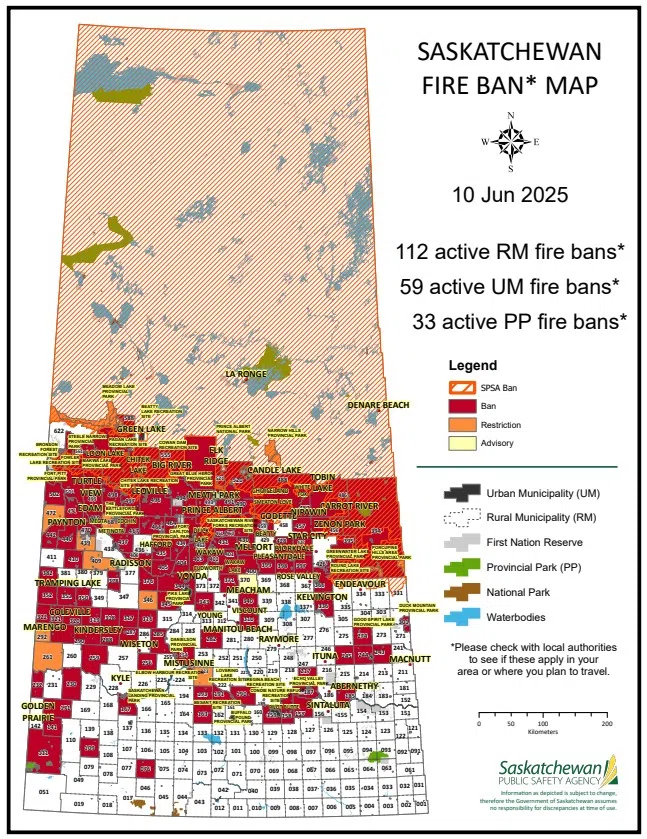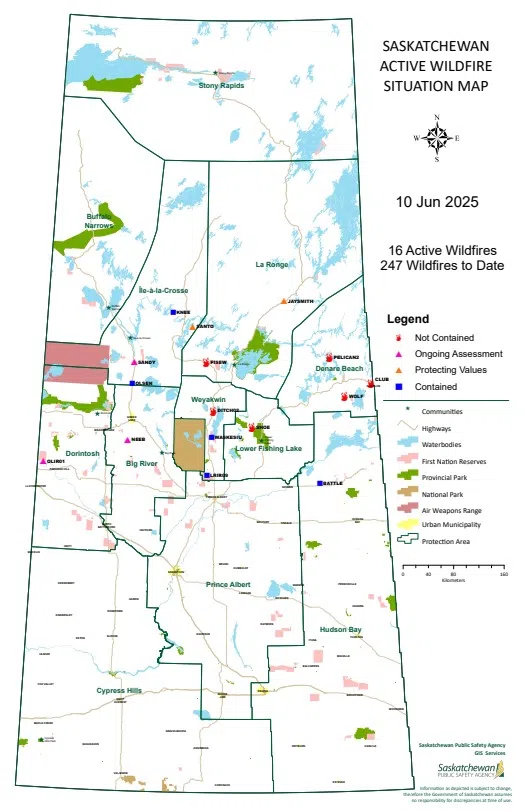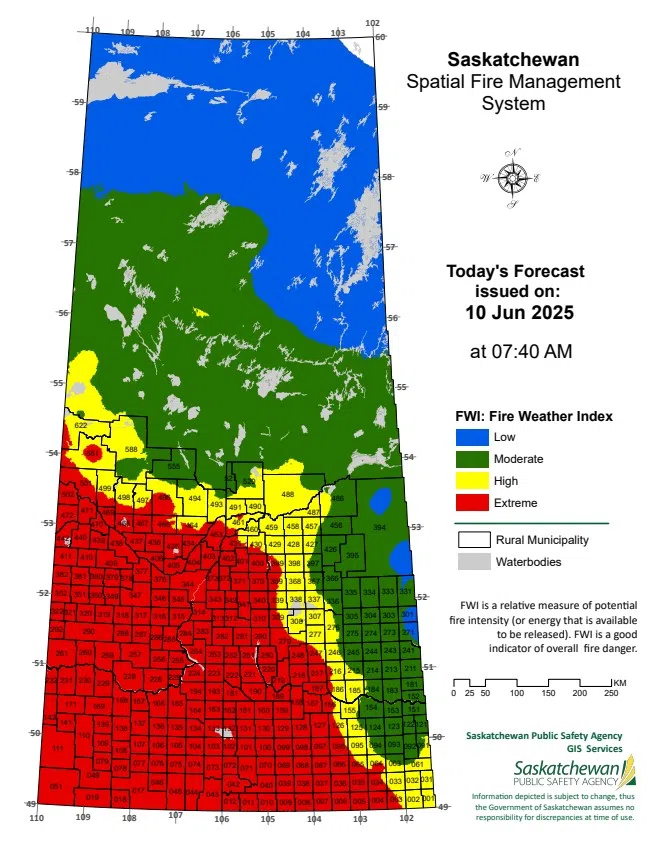The Saskatchewan Public Safety Agency (SPSA) is keeping a close eye on the weather forecast.
Luckily, some rain has fallen over most of the province, paired with cooler temperatures and calming winds, SPSA welcomes this positive news.
“Weather has been cooperating with us… allowing us to get more handle on some of these fires, putting crews into some of these areas that were too dangerous and high risk before,” Steve Roberts, Vice President, Operations with the SPSA, said.
Read More:
- VIDEOS: ‘A gut punch’: Wildfire destroys Robertson Trading in La Ronge
- Candle Lake residents breathe sigh of relief after weekend rain
- Train sparks grass fire on Circle Drive in Saskatoon
Thanks to the moderate weather, Roberts said changes are coming to the province’s fire ban.
“All areas north of the Churchill River that have received significant rain will be removed from the fire ban,” he said. “The area south of Churchill and the provincial forest, we will continue to monitor that, and we will make amendments to that as the weather improves.”
An updated fire ban list will be available later this afternoon, according to Roberts.
Listen to the latest update from the SPSA brief:
Roberts said the last few days of reprieve allowed crews to make significant gains on some of the fires, saying crews can target fires more directly.
“Our tactics have switched from aerial suppression to try and hold these fires to actual direct attack on the ground with firefighters to start securing these lines,” he said.
Despite the plan of direct attack, Roberts explained that these fires are likely to remain on the landscape throughout the wildfire season.
“They will be constantly monitored. They will flare up at times. There will be areas where we may get some small excursions. But what we were experiencing, even as short as a week ago, has greatly diminished,” he said.
Now we’re starting to see some community members head home.
Residents of Pelican Narrows, Birch Portage, Weyakwin and Timber Bay are able to return home.
Crews at the Foran Mine, near Denare Beach, have also returned back to work according to the SPSA.
SPSA dealing with “backlog” of evacuees
While a number of evacuees are able to return home, many are still unable to return.
As of Tuesday, the Canadian Red Cross was supporting 9,160 individuals and the SPSA is helping 860 individuals.
According to Marlo Pritchard, President and Fire Commissioner of the SPSA, it received several callers and it overwhelmed the system.
He said additional staff have been brought on to address the influx of callers.
“We’ll continue to do our utmost best and get out those resources, whether they’re food vouchers, financial support, or if there are individuals that have identified they need a hotel, we’re going to get those out,” he said.
Calls are also being triaged based on urgency. Pritchard explains that evacuees who might be staying with friends or family, for example, are likely to receive a call back later than someone who is more urgent need.
Fires in Saskatchewan on June 10
As of 2 p.m. on Tuesday, 23 active fires were burning in Saskatchewan on June 10.
SPSA said in its daily report that six of those blazes were not contained, while another 10 of the fires were under ongoing assessment and firefighters were protecting values in two. Five fires were considered contained.
Contained means suppression action is taking place and the fire is not expected to grow in size, ongoing assessment means the fire is being monitored regularly to assess risk to values in the area and not contained means suppression action is taking place but the fire is expected to grow in size, according to SPSA. Protecting values means a fire is active and action is focused on protecting things like cabins and infrastructure.
As well, fire bans are active in 59 urban municipalities, 112 rural municipalities and 33 provincial parks in the province, with the fire danger considered high to extreme for much of the province.
SPSA says there have been 257 fires in Saskatchewan so far in 2025. The five-year average to date for Saskatchewan wildfires is 146.














